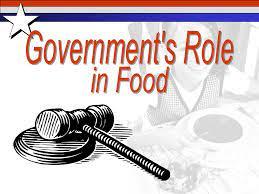The Critical Role of Government Regulations in Ensuring Food Safety
Stanley Bangani![]() Invalid date
4 minutes, 24 seconds
Invalid date
4 minutes, 24 seconds
610 views 1 Like
In recent times, South Africa has been plagued by alarming incidents of food poisoning originating from some few number of tuck shops. These small, informal eateries are vital in catering to the food needs of many communities, particularly in urban areas and townships. However, the recent spate of food poisoning outbreaks has raised significant concerns about food safety and has highlighted the crucial role that government regulations play in safeguarding public health.
Food safety is a fundamental aspect of public health. The consumption of contaminated or poorly handled food can lead to severe health issues, including foodborne illnesses and in extreme cases, fatalities. The responsibility of ensuring food safety primarily lies in the hands of both the food providers and regulatory bodies. In South Africa, the government regulations, particularly those overseeing tuck shops, have come under scrutiny following the recent upsurge in food poisoning incidents.
The regulatory framework in South Africa pertaining to food safety involves various governmental bodies, such as the National Department of Health, the National Department of Agriculture, Forestry, and Fisheries, as well as local municipalities. These entities are tasked with enforcing standards and guidelines, conducting inspections, and ensuring that food establishments adhere to the necessary health and safety protocols.
However, the efficacy of these regulations, particularly in monitoring tuck shops, has been questioned. Tuck shops often operate within informal settings, making regulation and oversight a challenging task. Factors such as limited resources, inadequate infrastructure, and insufficient training among food handlers can contribute to lapses in food safety standards. Additionally, the lack of strict enforcement and regular inspections may allow subpar practices to persist, risking the health of consumers.
To address these issues, there is a critical need for a multi-faceted approach involving both the government and local communities. Strengthening regulations and increasing the frequency of inspections for tuck shops is essential to ensure compliance with safety standards. This may include mandatory training for food handlers, regular health and safety assessments, and stricter penalties for non-compliance.
Moreover, raising awareness and educating both tuck shop owners and consumers about food safety practices is crucial. Empowering the local community with knowledge about safe food handling, storage, and hygiene can significantly contribute to reducing the risks of foodborne illnesses.
Collaboration between governmental bodies, health authorities, and community members is key to creating a safer environment in tuck shops. Implementing technology-based solutions, such as digital reporting systems or mobile applications, could streamline the process of inspections and monitoring, facilitating better oversight.
Ensuring food safety isn’t solely the responsibility of the government but also a collective effort that involves food providers, consumers, and regulatory bodies. By strengthening regulations, increasing oversight, and fostering community engagement, a safer food environment can be established in South African tuck shops.
In conclusion, the recent incidents of food poisoning in a few number of South African tuck shops have underscored the urgent need for more robust government regulations and proactive measures to safeguard public health. By addressing these issues, the nation can ensure that tuck shops, vital sources of food in many communities, uphold the highest standards of food safety, ultimately protecting the well-being of all consumers.
image source:https://slideplayer.com/slide/10368203/

